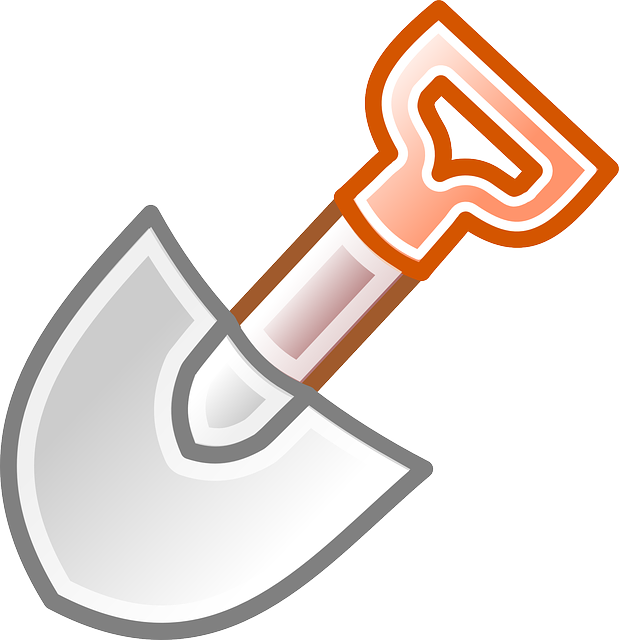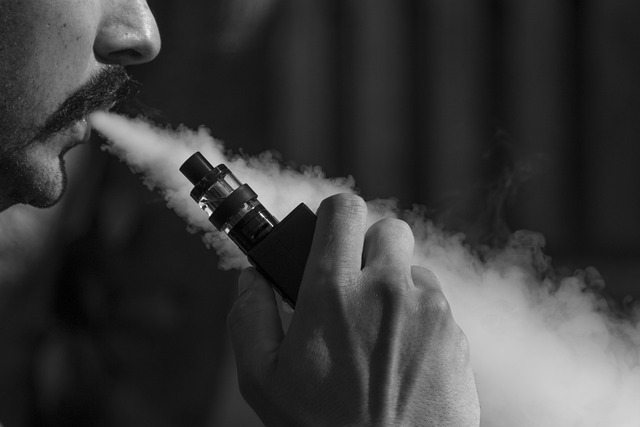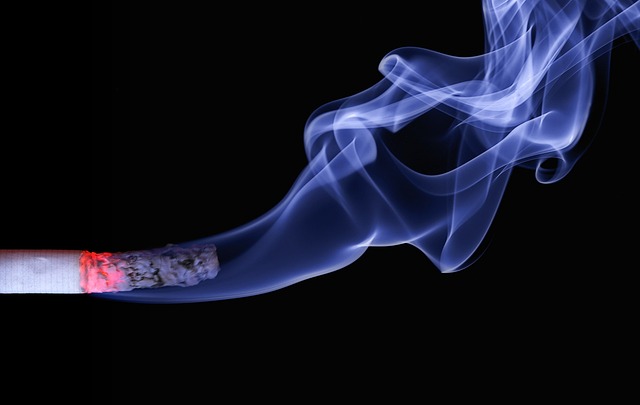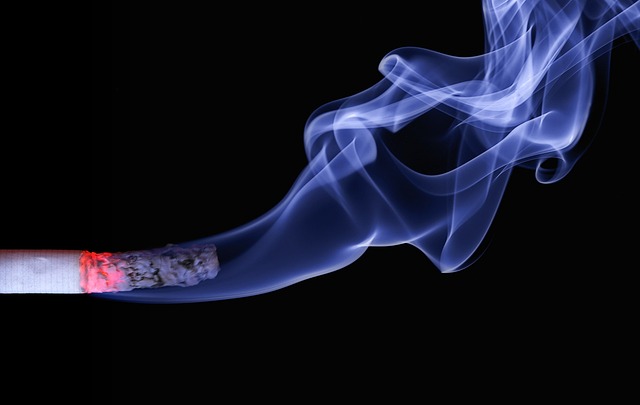Why Can’t You Vape After Tooth Extraction? Uncovering the Reasons
Have you recently had a tooth extraction and find yourself wondering why you can’t indulge in your favorite vaping habit? You’re not alone. Many individuals are curious about the reasons behind this restriction. In this article, we will delve into the underlying factors that advise against vaping after tooth extraction. By shedding light on this matter, we aim to provide you with a clear understanding of why it’s essential to refrain from vaping during your recovery. So, let’s uncover the reasons behind this dental caution, ensuring your oral health remains our top priority.
1. Understanding the Healing Process: The Importance of Abstaining from Vaping After Tooth Extraction
After undergoing a tooth extraction, it is crucial to understand the healing process and the importance of abstaining from vaping during this time. Your body needs time to recover and heal properly, and vaping can interfere with this process. Here are a few key points to consider:
1. Delayed Healing: Vaping introduces harmful chemicals into your mouth, which can slow down the healing process. Nicotine, a common ingredient in vape liquids, restricts blood flow and impairs the delivery of oxygen and nutrients to the surgical site. This delay in healing can lead to complications such as infections and dry socket.
2. Increased Risk of Infection: Vaping exposes your mouth to a multitude of bacteria and foreign substances. The act of inhaling vapor can introduce these harmful particles into the surgical site, increasing the risk of infection. Infections can cause pain, swelling, and prolong the recovery time. It is essential to maintain a clean and bacteria-free environment to promote optimal healing.
By abstaining from vaping after tooth extraction, you are giving your body the best chance to heal efficiently and reduce the risk of complications. It is important to follow your dentist’s instructions and avoid any activities that may hinder the healing process. Remember, patience and proper care are key to a successful recovery.

2. The Hidden Risks: Exploring the Complications of Vaping Post Tooth Extraction
Vaping has gained significant popularity in recent years, but it’s essential to be aware of the potential risks it can pose, especially after undergoing a tooth extraction. While many individuals turn to vaping as an alternative to traditional smoking, it’s important to understand that it is not without complications. Post tooth extraction, the mouth is in a vulnerable state, and any foreign substances introduced can hinder the healing process.
One of the hidden risks of vaping post tooth extraction is the possibility of dry socket. Dry socket occurs when the blood clot that forms after tooth extraction becomes dislodged or dissolves prematurely, exposing the underlying nerves and bone. Vaping, which involves inhaling heated aerosolized substances, can create negative pressure in the mouth, potentially disrupting the delicate blood clot formation and increasing the chances of developing dry socket. It is crucial to avoid any activities that can create suction in the mouth, including vaping, to minimize this risk and promote proper healing.

3. Unveiling the Reasons: How Vaping Hinders the Wound Healing Process after Tooth Extraction
Vaping has gained popularity in recent years as an alternative to traditional smoking. However, it is essential to understand the potential negative effects it can have on our health, particularly in relation to wound healing after tooth extraction. Here, we will delve into the reasons why vaping can hinder this crucial healing process.
- Nicotine: One of the main components of vaping is nicotine, a highly addictive substance. Nicotine has vasoconstrictive properties, meaning it narrows the blood vessels and reduces blood flow to the area around the extraction site. This reduced blood flow can impede the delivery of essential nutrients and oxygen to the wound, slowing down the healing process.
- Inflammation: Vaping has been found to cause inflammation in the body, including the oral cavity. Inflammation can delay wound healing as it disrupts the normal tissue repair process. Additionally, the chemicals present in the vapor can irritate the surrounding tissues, further exacerbating the inflammation and hindering the healing process.
Vaping also introduces several other harmful substances to the body, such as formaldehyde and acrolein, which can have detrimental effects on wound healing. It is crucial for individuals undergoing tooth extraction to understand the potential risks associated with vaping and make informed decisions to promote optimal healing.

4. Delving into the Science: The Impact of Vaping on Blood Circulation and Infection Risk Following Tooth Extraction
When it comes to the impact of vaping on blood circulation, research has shown that it can have detrimental effects on the body. Nicotine, which is present in most e-cigarettes, constricts blood vessels and reduces blood flow. This can lead to poor circulation, especially in smaller blood vessels such as those found in the gums and oral tissues. In turn, this reduced blood flow can impair the body’s ability to heal properly following a tooth extraction, increasing the risk of complications.
Moreover, vaping has been found to increase the risk of infection after tooth extraction. The chemicals present in e-cigarette aerosols can alter the oral microbiome, the collection of microorganisms in the mouth. This disruption in the balance of bacteria can create an environment that is more prone to infection. Additionally, the heat and moisture from vaping can contribute to a slower healing process, further increasing the risk of infection.
- Constricted blood vessels: Nicotine in vaping devices constricts blood vessels, reducing blood flow.
- Poor circulation: Reduced blood flow can hinder proper healing after tooth extraction.
- Altered oral microbiome: Chemicals in e-cigarette aerosols can disrupt the balance of bacteria in the mouth.
- Infection risk: Imbalanced oral microbiome and slower healing process can increase the risk of infection.

5. A Closer Look at Nicotine and Healing: Why It’s Crucial to Avoid Vaping After Tooth Extraction
When it comes to healing after a tooth extraction, it’s important to understand the impact of nicotine on the process. Nicotine, a highly addictive substance found in cigarettes and vaping products, can significantly hinder the healing process and increase the risk of complications. Here’s why it’s crucial to steer clear of vaping after a tooth extraction:
- Delayed Healing: Nicotine constricts blood vessels, reducing the blood flow to the surgical area. This decreased blood supply limits the delivery of vital nutrients and oxygen required for proper healing. As a result, the healing process may be significantly delayed, leading to prolonged discomfort and an increased risk of infection.
- Increased Risk of Dry Socket: Dry socket, a painful condition where the blood clot that normally forms after an extraction becomes dislodged or dissolves, is a common complication. Nicotine has been shown to interfere with the formation and stabilization of blood clots, making those who vape more susceptible to developing dry socket. This can cause severe pain and may require additional treatment to alleviate the discomfort.
- Compromised Immune Function: Nicotine has immunosuppressive effects, meaning it weakens the body’s immune system. This impairment can make it harder for your body to fight off potential infections that may arise after a tooth extraction. By avoiding vaping and nicotine, you give your immune system the best chance to function optimally and promote a speedy recovery.
In conclusion, refraining from vaping and avoiding nicotine after a tooth extraction is crucial for optimal healing. By doing so, you can reduce the risk of complications, promote faster healing, and minimize discomfort. Remember, your oral health is important, and taking the necessary steps to support the healing process will ensure a smoother recovery.
6. Clearing the Air: Debunking Myths and Misconceptions about Vaping and Tooth Extraction Recovery
When it comes to vaping and tooth extraction recovery, there are several myths and misconceptions that can cloud the truth. Let’s debunk these misunderstandings once and for all:
Myth 1: Vaping is safe for tooth extraction recovery.
Contrary to popular belief, vaping is not entirely safe for tooth extraction recovery. While it may seem like a harmless alternative to smoking, vaping can still have negative effects on the healing process. The chemicals present in e-cigarettes can irritate the extraction site, delaying the healing and potentially leading to complications. It is best to refrain from vaping during the recovery period to promote optimal healing.
Myth 2: Vaping doesn’t affect the success of the tooth extraction.
Another misconception is that vaping has no impact on the success of a tooth extraction. However, research suggests otherwise. Nicotine and other harmful substances found in vape liquids can constrict blood vessels, impair blood flow, and ultimately hinder the healing process. This can increase the risk of infections, dry socket, and other complications. It is crucial to prioritize your oral health by avoiding vaping after a tooth extraction to ensure a smooth and successful recovery.
7. Promoting Optimal Healing: Expert Advice on Navigating the No Vaping Rule After Tooth Extraction
After undergoing a tooth extraction, it is essential to promote optimal healing for a swift recovery. One crucial aspect to consider is the strict enforcement of the no vaping rule during this healing period. Vaping has become increasingly popular, but it can have adverse effects on the healing process and overall oral health. To navigate this rule effectively, we have gathered expert advice to help you understand why vaping should be avoided after a tooth extraction and provide alternative options to promote optimal healing.
Why should you avoid vaping?
- Vaping introduces harmful chemicals and toxins into the mouth, which can delay the healing process and increase the risk of complications.
- The heat generated by vaping devices can cause dryness in the mouth, which inhibits the production of saliva. Saliva plays a crucial role in the healing process by promoting natural cleansing and preventing infections.
- Chemicals present in vaping liquids can irritate the extraction site, leading to inflammation, pain, and potential infection.
Considering these factors, it is crucial to refrain from vaping after a tooth extraction to ensure optimal healing. However, we understand that breaking the vaping habit can be challenging. In the next section, we will provide you with expert-recommended alternatives to vaping that can help you navigate this rule while promoting the healing process effectively.
Frequently Asked Questions
Q: Why can’t you vape after tooth extraction?
A: Vaping after a tooth extraction is not recommended due to several important reasons.
Q: What are the potential risks or complications associated with vaping post tooth extraction?
A: Vaping can lead to various complications such as delayed healing, dry socket, infection, and increased pain.
Q: How does vaping affect the healing process after tooth extraction?
A: Vaping introduces harmful chemicals into the mouth, which can hinder the natural healing process by irritating the extraction site and potentially interfering with blood clot formation.
Q: What is dry socket, and how does vaping contribute to its development?
A: Dry socket is a painful condition that occurs when the blood clot that forms after tooth extraction is dislodged or dissolves prematurely. Vaping can create suction or negative pressure in the mouth, which may dislodge the blood clot and increase the risk of dry socket.
Q: Does vaping increase the chances of developing an infection after tooth extraction?
A: Yes, vaping can increase the risk of infection. The chemicals present in vape liquids can irritate the extraction site, making it more susceptible to bacterial growth and infection.
Q: Can vaping intensify the pain experienced after tooth extraction?
A: Vaping has the potential to exacerbate pain after tooth extraction. The heat and chemicals from the vapor can irritate the sensitive tissues in the mouth, leading to increased discomfort.
Q: How long should I wait before I can vape after a tooth extraction?
A: It is advisable to wait at least 48 to 72 hours before resuming vaping after a tooth extraction. However, it is always best to consult with your dentist for personalized advice based on your specific situation.
Q: Are there any alternatives to vaping that can be used during the healing period?
A: Yes, there are several alternatives to vaping that can be used during the healing period, such as nicotine patches, gum, or lozenges. These alternatives do not introduce harmful chemicals into the mouth and are generally considered safer options.
Q: What steps can I take to ensure a smooth recovery after tooth extraction?
A: To promote a smooth recovery, it is crucial to follow your dentist’s post-operative instructions, maintain good oral hygiene, avoid smoking or vaping, eat soft foods, and take any prescribed medications as directed.
Q: Can I resume vaping after the initial healing period?
A: While the initial healing period typically lasts a few weeks, it is still recommended to consult with your dentist before resuming vaping. They can evaluate your progress and provide personalized guidance on when it is safe to resume vaping without compromising your oral health.
In Conclusion
In conclusion, it is essential to understand why you cannot vape after tooth extraction. The primary reason is that the negative pressure created during vaping can disrupt the formation of blood clots, which are crucial for proper healing. Additionally, the chemicals present in e-cigarettes can irritate the surgical site and impede the healing process. It is vital to follow your dentist’s advice and refrain from vaping for the recommended period to ensure a smooth and successful recovery. Remember, prioritizing your oral health after a tooth extraction is key to avoiding complications and enjoying a speedy recovery.






